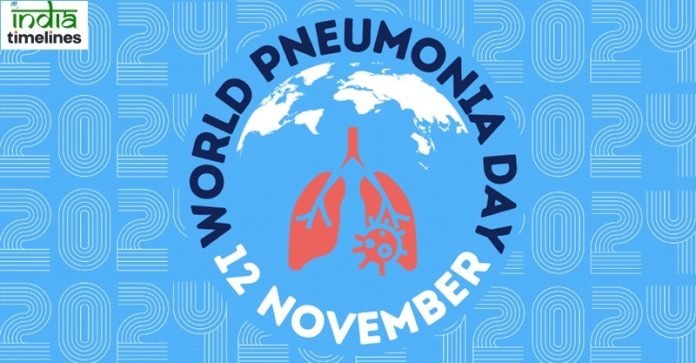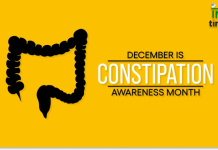
Pneumonia remains one of the leading causes of death globally, particularly among young children and the elderly. Every year, World Pneumonia Day is observed on November 12 to raise awareness about this life-threatening disease, promote preventive measures, and encourage action to reduce the global burden of pneumonia. In 2024, the significance of World Pneumonia Day is as pressing as ever, as the disease continues to claim hundreds of thousands of lives annually. This article will explore the importance of World Pneumonia Day 2024, the challenges posed by pneumonia, advancements in treatments, and how global efforts can make a difference.
Understanding Pneumonia: The Silent Killer
Pneumonia is an acute respiratory infection that affects the lungs. It can be caused by bacteria, viruses, or fungi, leading to the inflammation of the air sacs (alveoli) in the lungs, which may fill with fluid or pus, making breathing difficult. Symptoms of pneumonia include cough, fever, chills, shortness of breath, and chest pain. In severe cases, the infection can lead to respiratory failure or death, especially in vulnerable populations such as children under five, the elderly, and individuals with weakened immune systems.
According to the World Health Organization (WHO), pneumonia is responsible for approximately 14% of all deaths in children under the age of five. It is estimated that pneumonia kills over 800,000 children each year, mostly in low- and middle-income countries where access to healthcare and vaccines is limited. While the disease affects people of all ages, young children, elderly individuals, and those with pre-existing health conditions, such as asthma or chronic obstructive pulmonary disease (COPD), are particularly susceptible.
World Pneumonia Day: A Global Movement
World Pneumonia Day was established in 2009 by the Global Coalition Against Child Pneumonia to bring attention to the global impact of pneumonia and encourage governments, health organizations, and communities to take action. The day serves as a platform for raising awareness about the preventable nature of pneumonia and advocating for universal access to vaccines, treatment, and healthcare.
The theme for World Pneumonia Day 2024 centers around the continued push for equitable access to life-saving interventions and the need for global solidarity to combat pneumonia. Despite significant advancements in medical technology and healthcare, pneumonia remains a leading cause of death, disproportionately affecting the world’s most vulnerable populations. This year’s theme emphasizes the urgent need to close the healthcare gap and ensure that everyone, regardless of where they live, has access to preventive measures, timely diagnosis, and effective treatment.
Key Objectives of World Pneumonia Day 2024
- Raising Awareness: One of the primary goals of World Pneumonia Day 2024 is to raise public awareness about pneumonia, its causes, and the simple measures that can prevent it. Public health campaigns, social media outreach, and educational programs are crucial in informing individuals about the importance of vaccines, proper sanitation, and recognizing early symptoms of the disease.
- Promoting Vaccination: Vaccination is one of the most effective tools in preventing pneumonia. The pneumococcal vaccine, Haemophilus influenzae type B (Hib) vaccine, and the measles vaccine can all significantly reduce the risk of developing pneumonia. World Pneumonia Day 2024 will highlight the importance of childhood immunization programs, as well as adult vaccination for at-risk populations, including the elderly and individuals with chronic illnesses.
- Advocating for Access to Healthcare: While pneumonia is treatable, access to healthcare remains a challenge in many parts of the world. World Pneumonia Day 2024 will advocate for increased investment in healthcare infrastructure, especially in low-income countries where healthcare services are limited. This includes ensuring that antibiotics and other essential medications are affordable and accessible to those in need.
- Encouraging Research and Innovation: The fight against pneumonia requires continuous research and innovation. In 2024, World Pneumonia Day will focus on encouraging governments, pharmaceutical companies, and academic institutions to invest in research aimed at developing new vaccines, treatments, and diagnostic tools. Innovative approaches, such as the use of artificial intelligence in diagnosis or the development of more effective vaccines, hold the potential to significantly reduce the global pneumonia burden.
The Role of COVID-19 and Respiratory Health
The COVID-19 pandemic has brought respiratory health to the forefront of global health discussions. COVID-19, which primarily affects the lungs, has drawn attention to the importance of maintaining healthy respiratory systems and the vulnerability of certain populations to respiratory infections. While pneumonia and COVID-19 are caused by different pathogens, the two diseases share similar symptoms, and individuals with pneumonia are at a higher risk of severe complications if they contract COVID-19.
The pandemic also revealed the strain that pneumonia places on healthcare systems, especially in resource-poor settings where access to medical care and ventilators is limited. The global response to COVID-19 highlighted the importance of international collaboration, rapid research, and equitable vaccine distribution, all of which are crucial components in the fight against pneumonia as well.
Tackling Pneumonia in Children: The Fight for the Youngest Lives
Pneumonia remains the leading infectious cause of death in children under five, accounting for over 15% of all deaths in this age group. Many of these deaths could be prevented with timely vaccination, appropriate treatment, and improved nutrition. In 2024, global health organizations such as UNICEF, Gavi, and the WHO are focusing on strategies to reduce child mortality from pneumonia.
Interventions include:
- Expanding Vaccination Coverage: Increasing the availability of vaccines for pneumonia, particularly in low- and middle-income countries, is a key strategy. Vaccines like the pneumococcal conjugate vaccine (PCV) have been shown to reduce pneumonia-related deaths by nearly half in areas where coverage is high.
- Promoting Exclusive Breastfeeding: Exclusive breastfeeding for the first six months of life provides infants with essential nutrients and antibodies that protect against pneumonia and other respiratory infections.
- Improving Access to Clean Water and Sanitation: Poor sanitation and limited access to clean water contribute to the spread of pneumonia-causing pathogens. Efforts to improve living conditions can play a significant role in preventing infections.
- Ensuring Timely Treatment: In many cases, pneumonia can be treated effectively with antibiotics. However, delayed diagnosis and treatment due to lack of healthcare access or awareness result in unnecessary deaths. Expanding community health programs to provide early diagnosis and treatment is critical.
Global Partnerships and Initiatives for 2024
World Pneumonia Day 2024 will see renewed efforts from global partnerships such as the Every Breath Counts Coalition, which brings together governments, international organizations, non-governmental organizations (NGOs), and the private sector to reduce deaths from pneumonia. Collaborative efforts are essential in scaling up interventions, securing funding, and sharing best practices for pneumonia prevention and treatment.
Countries around the world are also taking part in initiatives to improve respiratory health, such as integrating pneumonia prevention into broader healthcare frameworks and maternal-child health programs. These initiatives aim to ensure that pneumonia prevention is part of comprehensive health policies, promoting long-term sustainability.
Conclusion: A Call to Action on World Pneumonia Day 2024
World Pneumonia Day 2024 is a crucial moment to renew global commitment to combating pneumonia and saving lives. While progress has been made in reducing pneumonia deaths, particularly in children, there is still much work to be done. On this day, let us remember that pneumonia is preventable, treatable, and curable. It is only through global collaboration, awareness, innovation, and action that we can achieve a future where pneumonia is no longer a leading cause of death.



































